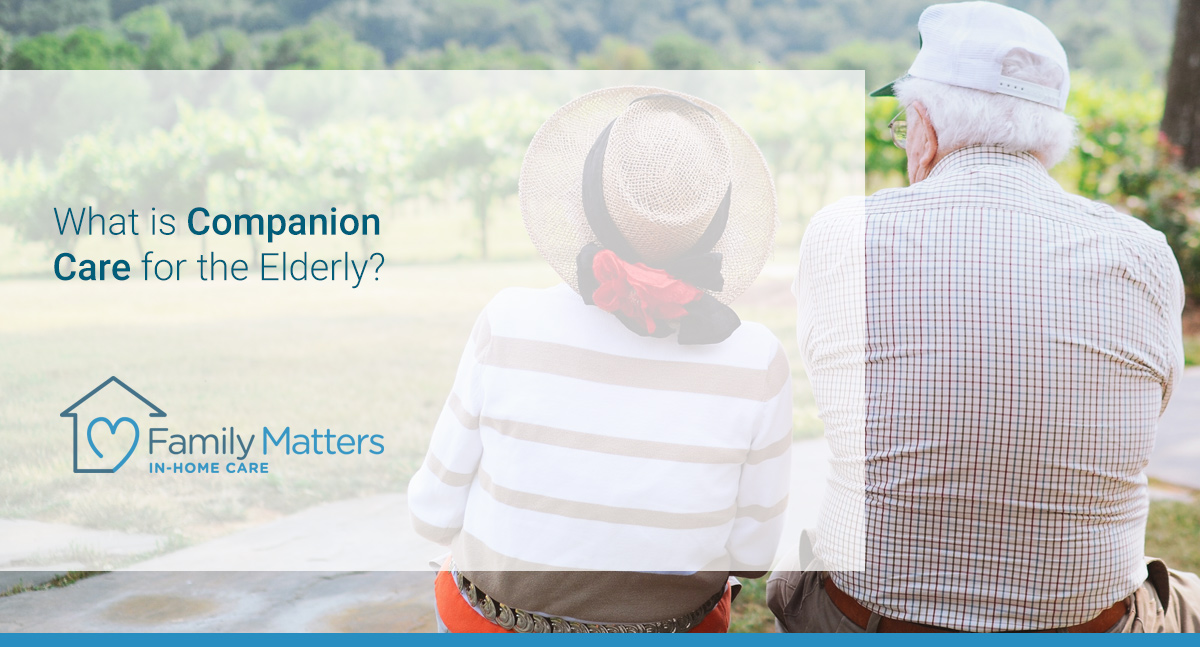
What is Companion Care for the Elderly?
You may have heard of companions, but still find yourself wondering exactly what is companion care for the elderly.
Companion care for the elderly, also known as companionship services, is a key part of senior care. This is because companionship not only offers seniors help with their daily tasks but it also provides them with consistent human interaction.
If a senior is retired or suffering from mobility issues, they can easily become isolated in their homes. Companions combat this isolation and the loneliness that happens as a result.
What Can a Companion Do for Seniors?
A companion can help your senior loved one in many areas, such as:
- Socialization
- Transportation
- Remaining Physically & Mentally Fit
Socialization
Most seniors prefer to live at home rather than move to an assisted living care center. They want to stay close to family members and keep the routines that they’ve formed in a familiar place. However, after retiring and possibly mourning the loss of a friend or a spouse, these seniors can suffer from loneliness.
A companion prevents this by offering frequent and long-term companionship. Because companies that offer companionship services tend to pair seniors with companions whose personalities and skills are best suited for the senior, companions quickly become part of the family. These companies will never assign a senior with a companion who they are uncomfortable with.
In addition to providing human connection, companions also help seniors stay social by providing them with transportation.
Transportation
With many seniors unable to drive, transportation is necessary for continued socialization. Companions help with this by transporting their seniors to community events, social activities, or a family member’s home.
Oftentimes, families assume that they can handle all of a senior’s transportation needs, but if everyone in the family has a full-time job and children, seniors can quickly be forgotten about or made to feel like a burden.
Families can prevent this by letting a senior’s companion take them out to wherever they need to go, whether that be a weekly luncheon and gym class or a simple trip to the grocery store.
Remaining Physically & Mentally Fit
Companions can also help seniors to remain physically and mentally fit. They can do this by participating in activities with seniors, such as going for a walk in the park. They can also play games with seniors that aid in maintaining cognitive abilities.
Maintaining mental sharpness is important for all seniors, but is especially beneficial for those suffering from dementia or Alzheimer’s.
Top Benefits of Companion Care for the Elderly
Companions help seniors and their families in many ways, from offering companionship to helping with basic daily tasks. But, companion care also offers many benefits such as:
- A longer life expectancy
- Faster recovery
- Peace of mind
Longer Life Expectancy
Humans are social creatures, and this doesn’t change as we age. As a result, whenever seniors are isolated or left alone, they can quickly become lonely. In fact, loneliness is connected to several serious health problems such as diabetes, sleep issues, and even depression.
Because companions can provide the socialization that our seniors crave, they can fight those physical and mental health problems, which then may result in a longer lifespan for your senior.
Faster Recovery
It is quite common for seniors to undergo surgery, and doctors and families always hope for a speedy recovery. Luckily, companions can help seniors recover faster!
Researchers have found that individuals who recover from surgery with help from a friend or companion have fewer post-surgery complications, allowing them to recover quicker.
Peace of Mind
Does your senior family member currently live at home, completely alone? Consider how often you worry about something going wrong while you are away. What if they fall or desperately need your help with an important matter, but you are unable to be there for them?
Instead of incessantly worrying about what may be going wrong, gain peace of mind by knowing that your loved one is always taken care of by their companion.
This peace of mind can extend to your seniors as well! They no longer need to worry about potential emergencies, knowing that their companion will be there for them.
What is Companion Care for the Elderly: Companions & Their Benefits
As we’ve learned, companion care for the elderly is essentially a way to guarantee that your senior family member can continue living a happy and fulfilled life, just with the help of a close friend.
These friends are known as companions, and they assist seniors with everyday activities to keep them active, social, and safe.
Along with the social benefits of having a companion, companion care for the elderly has been proven to extend the life of seniors, aid in a faster recovery time for seniors, and offer peace of mind for seniors and their family members.
If you or your family member is considering in-home care as part of a plan to age in place, contact Family Matters In-Home Care today for a free consultation. Our team is dedicated to supporting your family and helping older adults enjoy life in the comfort of their own home for as long as possible.
Some of the services offered by Family Matter In-Home Care include: Alzheimer’s & Dementia Care, Bed & Wheelchair Transfer Assistance, Companionship, Housekeeping & Meal Preparation, Personal Care, Recovery Care, and Transportation.
Serving the San Francisco Bay Area and Greater San Diego, Family Matter In-Home Care has offices throughout California including: Campbell, CA, Roseville, CA, San Marcos, CA, and San Mateo, CA.
